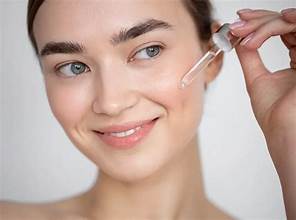Are you tired of trying various products to achieve that glowing skin? Many people experiment with different skincare products, including serums, to attain a beautiful complexion. However, making your own serum at home can prove to be incredibly beneficial for your skin. Let’s explore how to make a serum at home and its numerous advantages.
DIY Serum Recipe
To create your own serum at home, you’ll need the following ingredients:
- 1 tablespoon of Aloe Vera Gel
- ½ tablespoon of Vitamin E Oil
- 2 drops of Lavender Oil
Mix all these ingredients in a bowl and transfer the mixture into a clean container. You can also add glycerin to this serum, which helps moisturize the skin.
Benefits of Using Serum
Using serum on your face offers several advantages:
1. Hydration: Serum helps in keeping the skin hydrated and reduces oiliness.
2. Anti-Aging: The presence of Vitamin C in the serum helps in reducing open pores and diminishing signs of aging.
3. Blemish Reduction: Serum aids in skin regeneration and reduces the appearance of blemishes and scars.
4. Easy Absorption: Due to its lightweight consistency, serum gets absorbed into the skin easily, providing deep nourishment.
5. Skin Rejuvenation: Serums are known to improve skin texture and bring a radiant glow.
6. Overall Skin Health: Using serum regularly contributes significantly to maintaining healthy skin.
Important Considerations
Here are some essential points to keep in mind while making and using your homemade serum:
- Fresh Ingredients: Ensure that all ingredients used in the serum are fresh.
- Proper Storage: Store the serum in an airtight and clean container. Avoid exposure to air.
- Application: Apply the serum onto your face with gentle strokes, avoiding excessive rubbing.
- Patch Test: Before using the serum, do a patch test on a small area of your skin to check for any allergic reactions.
- Clean Skin: Always cleanse your face thoroughly before applying the serum.
- Night Application: Using the serum at night yields the best results.
- Consultation: If you experience any allergic reactions, it’s advisable to consult a dermatologist.




